The month in pictures: May
Fishing for octopus in Madagascar, dancing in Syria, and planting trees in Tajikistan: explore AKF’s work around the world this month
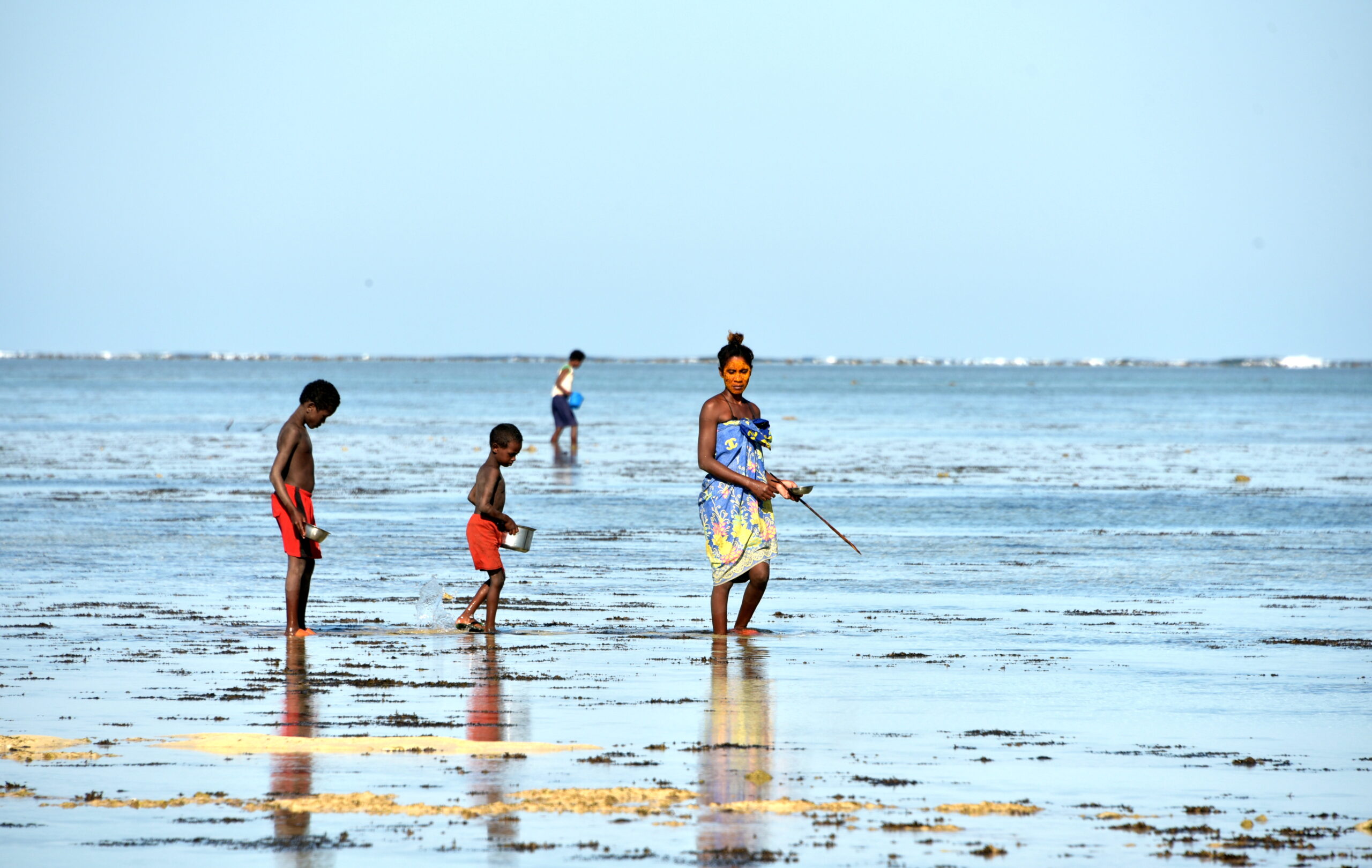

Supported by AKF’s Adolescent Girls’ Education in Crisis Initiative (AGENCI), three community associations came together to host an event for young people with disabilities. It was an opportunity for youth to tell their stories through various musical and theatrical performances, including singing and dancing with rings adorned with flowers. AGENCI supports marginalised youth, especially girls and people with disabilities, in Syria to catch up on their studies, learn essential life skills, and train in vocational skills.
Location: Aleppo, Syria / Photographer: Ali Shaheen
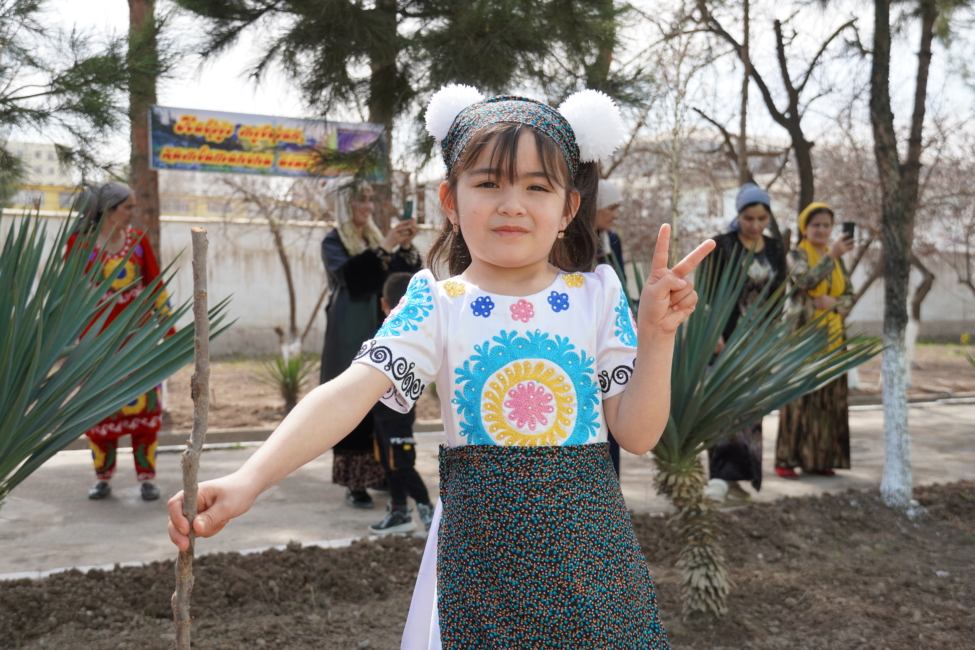
A young girl shines with pride after a tree-planting adventure at her early childhood development school. Her teachers led a tree planting activity to demonstrate the importance of looking after the environment and the impacts of climate change. The parents of students also helped out, planting a variety of trees including apple, cherry and almond trees.
Location: Khatlon, Tajikistan / Photographer: Firuzai Muzaffar
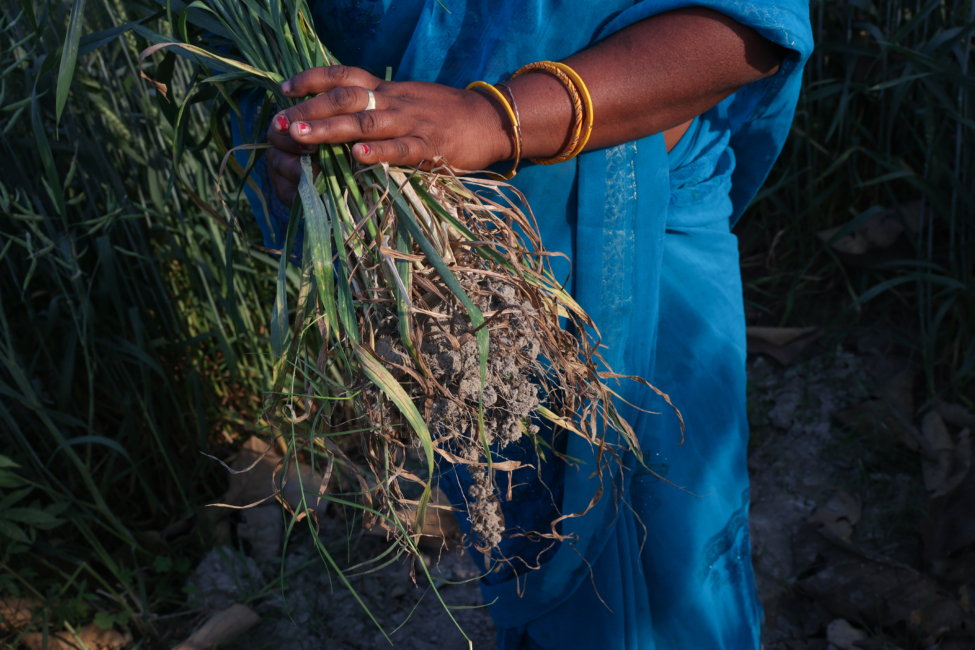
Sarita Devi has embraced zero/reduced tillage farming on her field. Holding her wheat crop, she shares how this technique helps retain soil moisture and structure. This also helps reduce input costs and increases the amount of carbon stored in the soil by maintaining organic matter. In Sarita Devi’s village, AKF has piloted a climate smart village initiative, implementing climate-resilient and regenerative farming practices.
Location: Bihar, India / Photographer: Mansi Midha
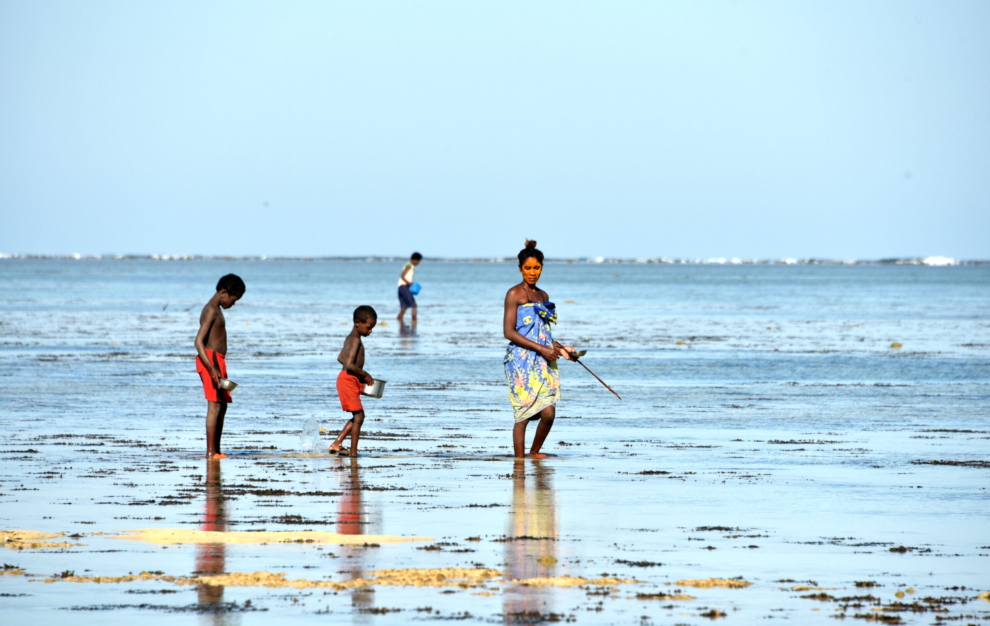
A Vezo family searches the reef flats for octopus in the early morning sun. The Vezo are a Malagasy migratory tribal community, for whom the ocean and fishing are intrinsic to their culture. For several months of the year, many Vezo migrate from Madagascar’s mainland to the Barren Isles – a chain of nine islands so remote that even many Malagasy do not know they exist. To support the fishers and their families who live on these islands, AKF is working with technical and local partners to conserve the marine environment and identify alternative sources of income that complement small-scale fishing.
Location: Barren Isles, Madagascar / Photographer: Grégoire Imberty
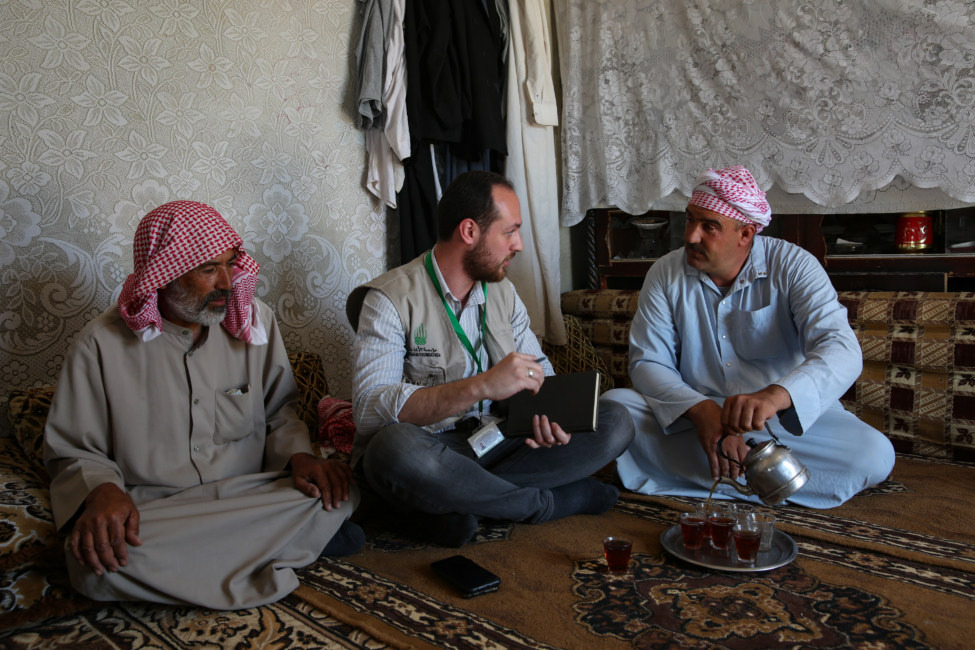
Ahmad Ezeizi, a member of the AKF Syria team, consults with a community organisation to discuss their needs in relation to AKF and the EU’s programme working to strengthen resilience to climate change and improve livelihoods. It will do this by promoting improved livestock practices in Aleppo, Homs, and Hama Governorates of Syria. In-depth community needs assessments are essential to developing AKF’s programmes; they catalyse long-term impact and ensure communities play an autonomous role in designing and implementing programme activities.
Location: Aleppo, Syria / Photographer: Ali Shaheen

In Madagascar, rice is the staple food – it is central to Malagasy culture. Here, three farmers pound rice they have grown using the sustainable Zanatany rice cultivation technique, designed by AKF and local farmers. Zanatany means ‘native child of the Earth’ in Malagasy drawing on its name and breaking away from tradition, the Zanatany System directly seeds ‘native’ rice plants into the earth, rather than transplanting ‘aliens’ grown in nurseries.
Location: Ambatolampy, Madagascar / Photographer: Humberto Caldas
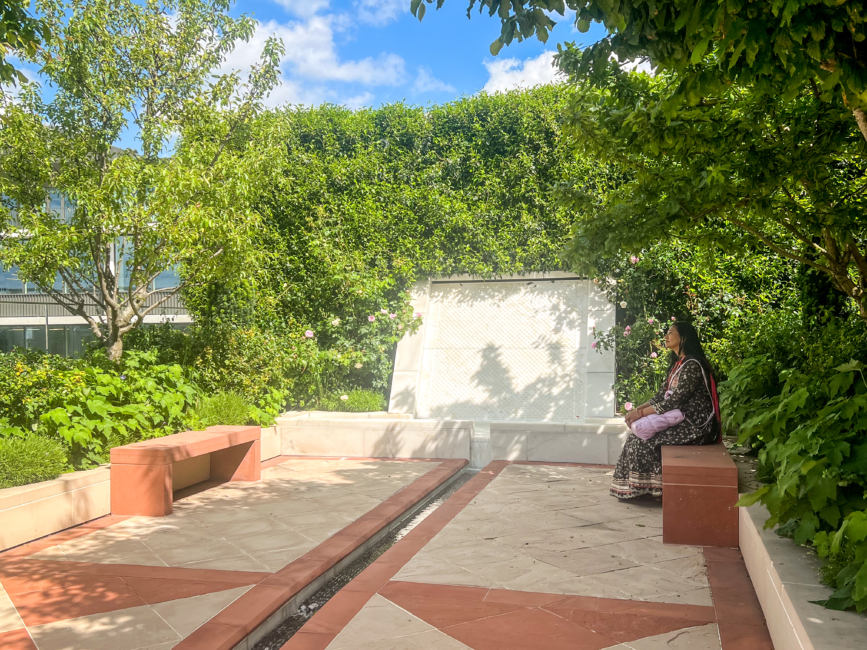
At the end of a busy week, Seema Shukla enjoys a moment of quiet in the Garden of Life at the Aga Khan Centre in London. Seema visited London to accompany Arti – a member of AKF’s Project Lehar and this year’s winner of the Amal Clooney Women’s Empowerment Award – to the Prince’s Trust Awards. Seema is the Project Coordinator for Project Lehar in Uttar Pradesh, India. Project Lehar offers vocational training, entrepreneurship and life skills courses for girls and young women from low-income backgrounds.
Location: London, UK / Photographer: Kerensa Keevill

A 5-year-old student holds a T-Learning card at Toangoma Pre-Primary School in the outskirts of Dar es Salaam. The T-Learning Model is a model designed by teachers through AKF’s flagship education programme, Schools2030. The model involves a large structure in the letter ‘T’ shape (seen in the background). On either arm of the structure, teachers place cards with vowels, consonants, pictures, or numbers. The cards are jumbled up, and learners pick out the correct card (depending on the teacher’s instructions) and read them aloud while placing the cards on the bar. The model is aimed at improving foundational literacy through collaborative, play-based learning.
Location: Dar es Salaam, Tanzania / Photographer: JUU Africa
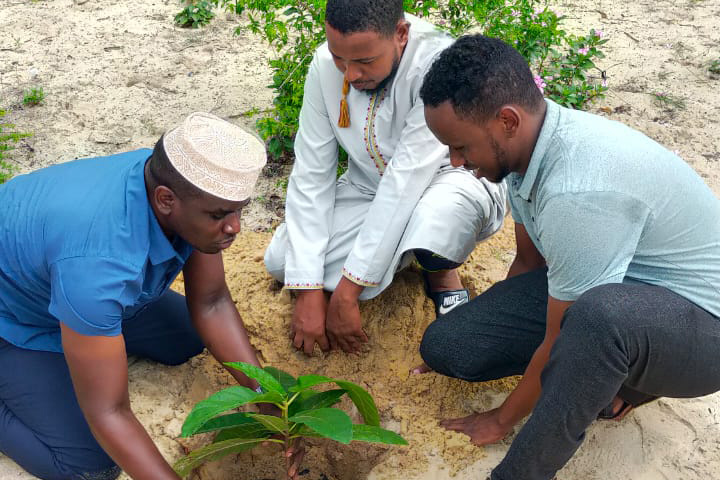
Over the last couple of months, heavy rainfall and flash floods have affected many of AKF’s programmes in Kenya, particularly in coastal areas. To commemorate the lives lost during the floods, the team hosted concurrent tree planting events in Lamu and Mombasa in partnership with the Ministry of Education and Teachers’ Service Commision. As well as providing a meaningful opportunity to mourn, the initiative also encouraged communities to practice tree planting to mitigate future disasters.
Location: Lamu, Kenya / Photographer: Munsin Ruhuma
/9
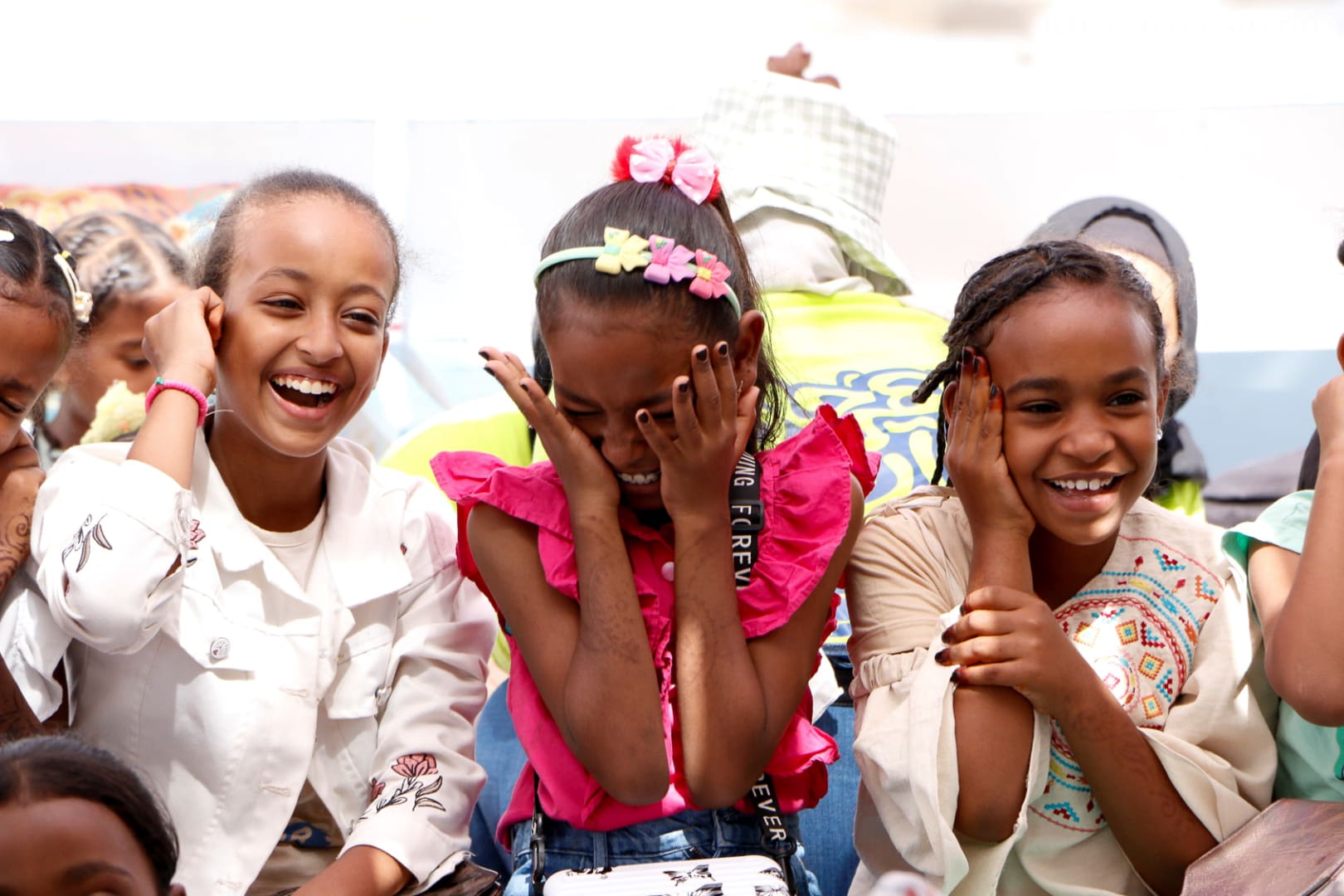
Support our work Your donations are helping us build a future where we all thrive together.